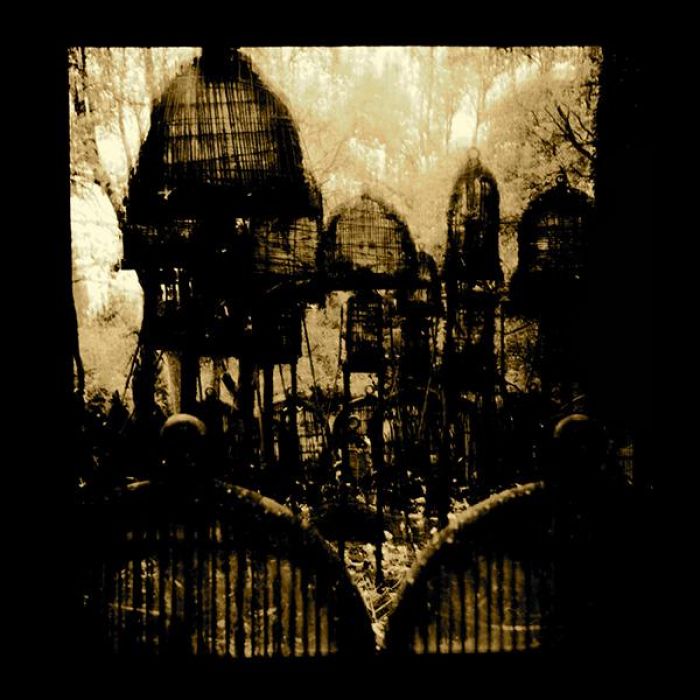Apophasis by Caul (Review)

The title for Caul’s latest release, which has been released under the Creative Commons License for the Dark Winter netlabel, takes its name from the term for so-called “negative theology.” That is, an attempt to discern the nature of God by investigating and delving into what God is not. Such obscure theological ruminations are nothing new for Brett Smith, the man behind the Caul moniker, who has incorporated religious themes and concepts into such previous releases as The Sound Of Faith, Reliquary, and Light From Many Lamps.
Folks describing dark-ambient music often resort to such imagery as ruined cathedrals, haunted monasteries, and long-forgotten rituals (even though, interestingly enough, a good deal of dark-ambient music also incorporates occult and decidedly non-Christian). And yet, as pretentious and clichéd as those comparisons can be, there is something to them.
Despite, or maybe because of, its incorporation of difficult sounds, which are often as foreboding as they are lovely, and its obtuse, challenging nature, there is something about dark-ambient music that enables it to convey impressions of deep, numinous things. And that’s especially true of Caul’s music.
Part of that probably lies in Smith’s own religious beliefs. While he doesn’t call himself a Christian per se, Smith does view his music is an attempt for him to have a “dialogue” with God. Which lends it an intimacy and emotional warmth that is unique amidst many of his peers.
But it’s never an easy thing, this dialogue, and that’s very true of Apophasis. For starters, the album is actually a single 40-minute track. And unlike much of Caul’s work, which is often relatively song-oriented and possesses a strong sense of melody, Apophasis is almost pure drift.
Static crackles along the event horizons of cavernous drones that seem to be emanating from the coldest reaches of space. High-pitched radio signals occasionally ring out, sounding all the more like distress calls or desperate attempts for communication given the blackness surrounding them. Tribal drums thunder off in the distance. Long stretches of near-silence pervade the album, and yet they do little to comfort the listener, the barrenness only proving to be more unsettling. And that’s just the first half of the track.
If Apophasis is an attempt by Smith to examine what God is not, and given the dark depths that he plumbs throughout the track, the conclusions he reaches by the end of what God is must be of a most glorious kind. And yet even the darkest, most unsettling and alien moments hold a certain reverence about them.
But it’s not all horror and night. Moments of respite occasionally shine through the nebulous, oppressive drones, taking the form of silvery, angelic synths and lighter choral pieces. And the very last thing we hear before the disc ends is a soft, pensive synth melody and that most intimate of sounds, a heartbeat. As with all of Caul’s work, there can be beauty, reverence, and warmth, even in the darkest and most foreboding of places and sounds.